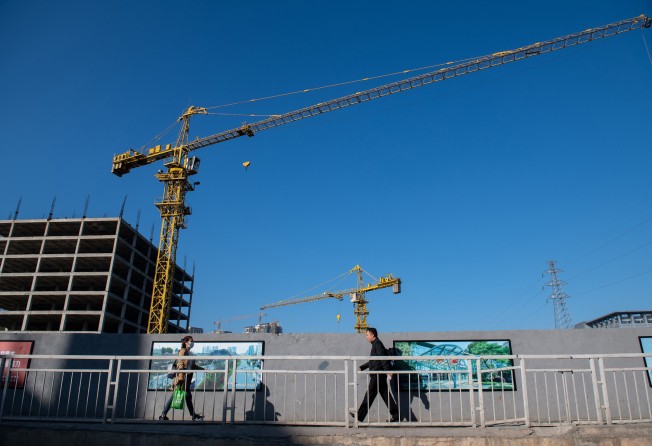China’s property developers change tack as single women emerge as new buyers
- More mainland women are opting to purchase a home before marriage
- Home ownership seen as a factor helping to bolster sense of belonging and security in cities such as Beijing

In a departure from tradition, more Chinese women are opting to purchase homes while they are single, undertaking the biggest purchase of their lives without the financial support that comes with marriage.
The country’s largest property listing website Ke.com analysed 67,724 transactions on its platform in 2018 and found 47.9 per cent of the buyers were female. In 2014, women accounted for about 30 per cent of transactions on the platform, the company said.
Liu Ce head of research at Kaisa Group said the appearance of a home, including the inner decor and landscaping carry more weight for female buyers, while other factors such as the location and price matters less.
“Women are always a decisive force in our industry,” said Liu.
In recognition of the growing role of women as homebuyers, developers have placed more emphasis on the presentation of show houses, including elements such as interior finishing.
“In China parents like to buy a flat for their children, even as early as toddlers, for both investment purposes as well as a gift to their children,” said Guo Yi, chief analyst at Beijing-based property agency Heshuo.
She added that many parents also believe that home ownership could improve their offspring’s appeal in finding a marriage partner.
A survey by Ke.com over the weekend found that 74.2 per cent of women polled said they bought a home without financial support from their partners, while 45.2 per cent did so with financial support from their parents, and 29 per cent were able to purchase solely by themselves.
The poll included 964 homebuyers in 12 major cities, including Beijing, Shanghai, Shenzhen, Hangzhou, Wuhan and Changsha.
In an unrelated survey, HSBC reported that 70 per cent of Chinese millennials, or those aged 19 to 36, own property, compared to 35 per cent in the US and 31 per cent in Britain.
Meanwhile, research by Southwestern University of Finance and Economics in Chengdu found that 85 per cent of mainland families lived in their own houses in 2017, while 21.4 per cent of homes in China were empty, a high figure that may reflect purchases on behalf of children that will be passed on when they grow older.
Emily Wu, a 27-year-old woman working in Beijing’s media sector, is representative of the new buyer. Last year upon the urging of her parents, she bought a small second-hand flat in Beijing for 2.4 million yuan (US$358,000). Her parents paid 90 per cent of the purchase price while she paid the remainder. Wu viewed a dozen homes before whittling down a shortlist of five possibilities, leaving the final decision to her parents.
“With the home settled, I gained a much stronger sense of security in this vast city. I feel I was able to concentrate on my career without worrying I have to leave the city someday,” she said.
Wu, who is single, said her goal is to one day live in a bigger home with a growing family.
“Home ownership carries the benefit of access to a nearby school. So when I date, at least I can say I solved a crucial problem: the education of our future children,” she said.
Zhang Fan, vice-president of Boill Holding Group, a Shanghai-based developer, said women were less concerned about the size of a home, as long as there were neighbouring green areas, and close access to amenities such as a rail transit, shops and hospitals.
“They also care about digital advancement,” Zhang said. “For example a project enabling users to remotely turn on heat or a humidifier before returning home is very popular.”